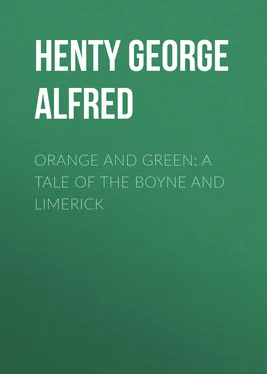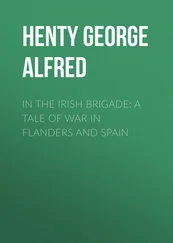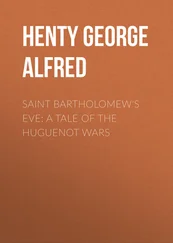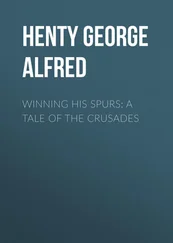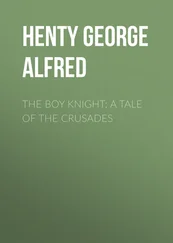George Henty - Orange and Green - A Tale of the Boyne and Limerick
Здесь есть возможность читать онлайн «George Henty - Orange and Green - A Tale of the Boyne and Limerick» — ознакомительный отрывок электронной книги совершенно бесплатно, а после прочтения отрывка купить полную версию. В некоторых случаях можно слушать аудио, скачать через торрент в формате fb2 и присутствует краткое содержание. Жанр: foreign_children, foreign_antique, foreign_prose, prose_military, на английском языке. Описание произведения, (предисловие) а так же отзывы посетителей доступны на портале библиотеки ЛибКат.
- Название:Orange and Green: A Tale of the Boyne and Limerick
- Автор:
- Жанр:
- Год:неизвестен
- ISBN:нет данных
- Рейтинг книги:4 / 5. Голосов: 1
-
Избранное:Добавить в избранное
- Отзывы:
-
Ваша оценка:
- 80
- 1
- 2
- 3
- 4
- 5
Orange and Green: A Tale of the Boyne and Limerick: краткое содержание, описание и аннотация
Предлагаем к чтению аннотацию, описание, краткое содержание или предисловие (зависит от того, что написал сам автор книги «Orange and Green: A Tale of the Boyne and Limerick»). Если вы не нашли необходимую информацию о книге — напишите в комментариях, мы постараемся отыскать её.
Orange and Green: A Tale of the Boyne and Limerick — читать онлайн ознакомительный отрывок
Ниже представлен текст книги, разбитый по страницам. Система сохранения места последней прочитанной страницы, позволяет с удобством читать онлайн бесплатно книгу «Orange and Green: A Tale of the Boyne and Limerick», без необходимости каждый раз заново искать на чём Вы остановились. Поставьте закладку, и сможете в любой момент перейти на страницу, на которой закончили чтение.
Интервал:
Закладка:
"When will the king arrive at Dublin, father?"
"He goes first to Cork, Walter. Tyrconnell has set out, and will meet him there. They say he will be here in about ten days' time. The French ambassador, the Marquis d'Avaux, comes with him, and many French nobles."
"Do you think, father, he will at once order that his friends shall receive the land again which was taken from them by Cromwell's soldiers?"
"I hope not, my boy. It is his interest and not our own we must think of now; and if Ireland is to resist, successfully, the English and continental troops of Dutch William, we must be united–we must be Irishmen first, Catholics and Protestants afterwards. I trust that he will issue such proclamations as will allay the alarm of the Protestants, and bind us all together.
"King James is not like his father. In no single case, since he came to the throne, has he broken his royal word once given; therefore, all may feel confidence in any promises he may make. I have, of course, no hope that anything he can say will influence the fanatics of Derry and Enniskillen, but we can afford to disregard them. They are entailing misery and suffering upon themselves, without the slightest benefit to the cause they advocate. If we beat the English, of course those places must finally surrender. If the English beat us, they will get their Dutch William as king, without any effort on their part. I think, myself, that it will be very unwise to attempt anything against those two places. The people there can shut themselves up in their walls, as long as they like, and by so doing can in no way harm us. If we take their towns, it will only add to the bad blood that already exists. Better by far leave them to themselves, until the main battle is fought out."
On the 23rd, the news came that the king was to arrive in Dublin the next day, and Mr. Davenant, or, as he was now called, Captain Davenant, went over, with all the gentry of the neighbourhood, to meet him.
King James was received with enthusiasm. Addresses were presented to him by the several public bodies, and by the clergy of the Established Church. His answer to these addresses gave satisfaction to all. He promised favour and protection to the Established Protestant Church; issued an invitation to the Protestants who had fled the kingdom to return to their homes, and assured them of safety and his particular care; and he commanded that, with the exception of the military, no Catholics should carry arms in Dublin. Finally, he summoned a parliament to meet him in Dublin on the 7th of May.
One day, a messenger arrived with a despatch for Captain Davenant.
"We are to move into Dublin, tomorrow, Walter," he said when he read it. "We are to take the field at once. The king himself is going to march in command of us against Derry. I think his majesty is wrong; and I know that Tyrconnell has argued strongly against his intention. There are three reasons against it. First, as I told you, I think it were better to leave Derry alone, until the main issue is settled. Secondly, King James has no military experience whatever, and if ought goes wrong with the expedition, he will lose prestige. Thirdly, although it were well for him to be with the army when it fights a foreign foe, it were better that he should not lead it against men who are, however much they may rebel against him, his own subjects.
"I know Tyrconnell has set forth these objections to him; but, unhappily, obstinacy is a fault of all the Stuart race, and it generally happens that they are most obstinate when most wrong. However, I trust that when Derry sees so strong a force marching against it, it will open its gates without resistance. A siege can only entail horrible suffering on the town; and that suffering will, in the end, tell against James's cause, for it will excite the sympathy of the Protestants in England and Scotland, and make them all the hotter to conquer Ireland."
The following day, the troop was mustered in front of the castle, and, after a tender farewell to his wife and mother, Captain Davenant placed himself at their head and rode off. A quarter of an hour later Walter, with Larry Doolan on a rough little pony by his side, rode after the troop.
Dublin was reached in the afternoon. The town presented a festive appearance. The principal streets were still draped with the flags which had been hung out at the king's entry, five days before. The streets were thronged with people, for loyalists had come in from all parts of the country to welcome the king.
Large numbers of men, belonging to the newly raised regiments, wandered among the crowd, and with these were mingled the French uniforms of the Irish troops who had come over with James. The troop was loudly cheered by the crowd, as it passed through the town to the spot assigned to it in the camp of the force gathered near the city. Walter and Larry rode a short distance behind the troop, and joined it as soon as it reached the ground allotted to it.
"It was a brave sight, father, was it not, to see the city decked out, and all the people cheering for the king? Dublin is setting a fine example–isn't it?"
"You must not set much weight upon the cheering of a crowd, Walter. I do not say that the people of Dublin may not, at the present moment, be loyal to the king; but if he were defeated, and William were to march in, you would see that they would cheer him just as heartily. The mob of London cheered King James, as he passed through it, a week before he was so ill advised as to fly; and they threw up their hats for joy, a fortnight later, for William. No, my boy–there is no dependence on a mob. They worship success, and the king who is present is sure to be vastly more dear to them than the king who is absent.
"And now you had better help Larry picket your horses. Put them by the side of mine. See how the troopers fasten theirs, and do yours the same. When that is done, send Larry to get hold of some wood, and light a fire. It will be cold when the sun goes down. As for food, we have brought enough with us for tonight. Tomorrow, I suppose, we shall get rations."
Captain Davenant now posted a certain number of men to look after the horses, and the rest set off to cut firewood; and, in an hour, four or five great fires were blazing. Forage was served out for the horses, from the stores which had been collected, and also a truss of straw to every three soldiers, as bedding.
Walter had, in the meantime, strolled away among the other camps, and was greatly amused at the various shifts and contrivances that the men had made to make themselves comfortable. A few only of the officers had tents; for these, as well as all other necessaries of war, were wanting; and the troops who had, for some little time, been in camp there, had raised all sorts of shelter from the weather. Some had constructed little huts of turf, thatched with straw or rushes; others had erected little tents, some of sailcloth obtained from the shipping, others of blankets, coarse linen cloaks, or any other articles on which they could lay hands. All were in high spirits at the prospect of the termination of the monotony of continued drill, and of the commencement of active campaigning. Huge fires blazed everywhere, and the country, for some distance round, had been completely stripped of its wood.
Everywhere was life and bustle. Men were cleaning their arms, preparatory to the march of next day. Others were cooking at the fires. Troopers were grooming their horses. Snatches of song, and loud laughter, rose in the air.
After wandering about for an hour, Walter rejoined his father. Captain Davenant was sitting with the two officers of his troop, Lieutenant O'Driscoll and Cornet Heron, by a fire, the materials for which the three troopers who acted as their servants had collected. There was no cooking to be done, for sufficient cold provisions had been brought with the troop.
Читать дальшеИнтервал:
Закладка:
Похожие книги на «Orange and Green: A Tale of the Boyne and Limerick»
Представляем Вашему вниманию похожие книги на «Orange and Green: A Tale of the Boyne and Limerick» списком для выбора. Мы отобрали схожую по названию и смыслу литературу в надежде предоставить читателям больше вариантов отыскать новые, интересные, ещё непрочитанные произведения.
Обсуждение, отзывы о книге «Orange and Green: A Tale of the Boyne and Limerick» и просто собственные мнения читателей. Оставьте ваши комментарии, напишите, что Вы думаете о произведении, его смысле или главных героях. Укажите что конкретно понравилось, а что нет, и почему Вы так считаете.
